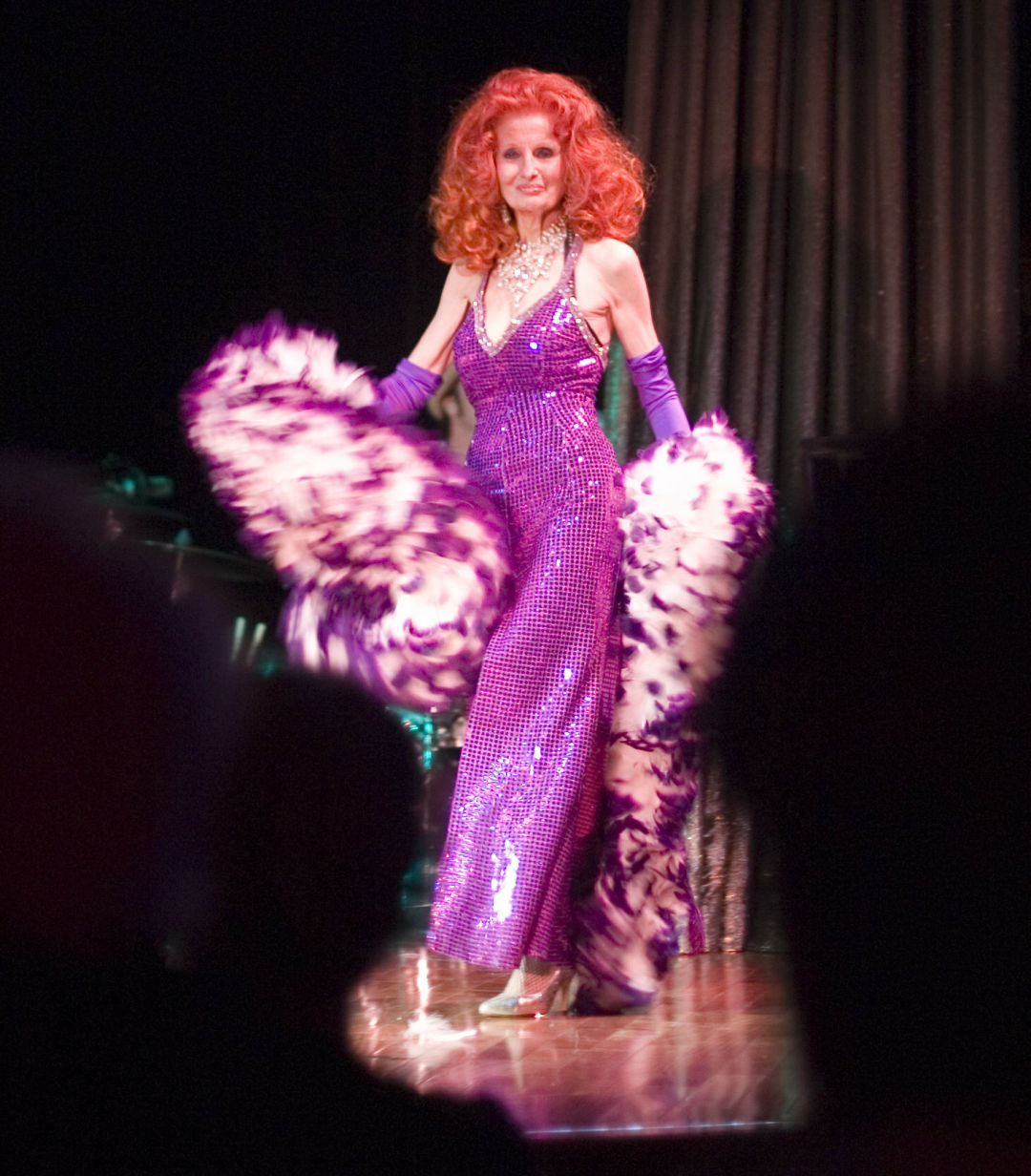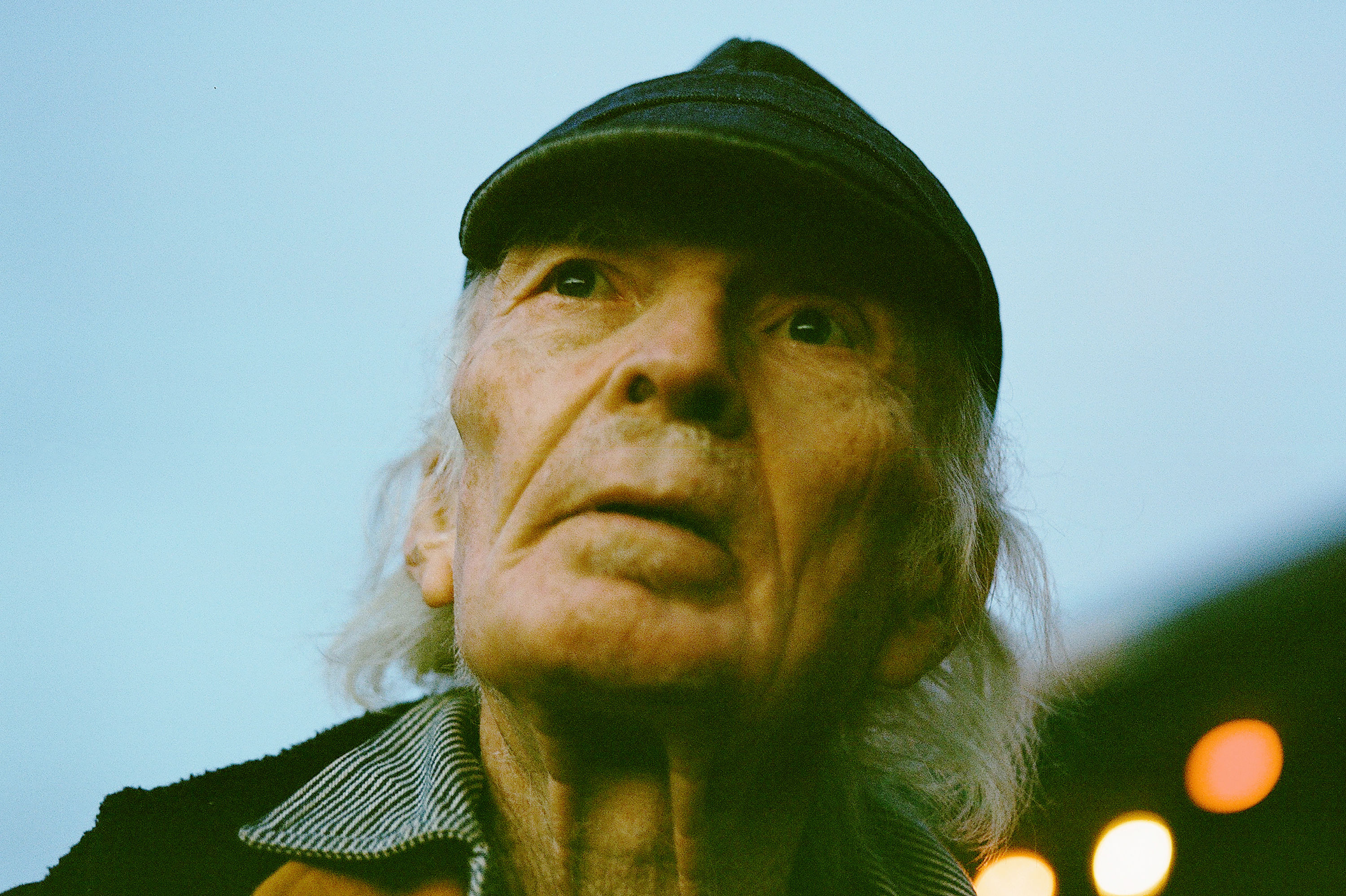Remembering Tempest Storm, Burlesque Legend and Former Portlander

Tempest Storm, burlesque legend and onetime Portlander
Image: Chris Blakeley
The first erotic dancer to perform at Carnegie Hall seduced midcentury America’s most famous men and elicited sexually frustrated riots on a 1955 visit to the University of Colorado. Most importantly? This burlesque queen, friend to Marilyn Monroe and costar to Bettie Page, almost gave it all up to call Portland home.
Tempest Storm's legend concluded April 20. She passed away in her Las Vegas home at the age of 93, and was laid to rest May 12 in her birthplace, Eastman, Georgia. Her business manager Harvey Robbins told the Las Vegas Review-Journal that Storm experienced a short illness while recovering from a second hip surgery, and had shown signs of dementia in recent months. An online fundraiser for Storm’s care launched a week before she died, and will cover funeral costs. She is survived by siblings and extended family.
“She was an idol of many, an icon in her field,” Tiffany Carter, Storm’s longtime friend and peer who helped start the fundraiser, tells Portland Monthly via text. "She always showed class and beauty. She had a quick wit and a sweet personality.” Carter says she provided Storm care after a fall in 2017, and arranged her final public appearance in 2019 at the Burlesque Hall of Fame in Las Vegas. A pair of male burlesque dancers from London and New York escorted Storm to the stage; Storm wore a vintage gown from her heyday. “[Tempest] always brightened up with men around her," Carter says.
Storm’s remarkable beauty was born in a remarkably cruel world. Nimisha Mukerji’s 2016 documentary Tempest Storm (streaming now for free on YouTube) reflects on the childhood sexual violence and relentless sexism Storm survived; the racist blowback Storm suffered from friends, family, and bosses during her fourth marriage to the late actor/singer Herb Jeffries; and the exploitative men and toxic work habits that forever estranged Storm from her and Jeffries’ daughter and granddaughter. Carter says she still hasn’t made contact with Storm’s daughter, Patti Jeffries, despite multiple efforts.
Storm’s local chapter was a microcosm of that world. The Oregonian reported that Storm came to Portland 1953, when she was considering retiring, while the Oregon Encyclopedia reports that she and her third husband, fellow burlesquer John Becker, purchased the since-demolished Capitol Theatre on SW 4th Street in 1952. Their local competitor—the Star Theater—gave top marquee billing to Becker’s ex-wife, Maybelle Anderson, a.k.a. Arabella Andre, who Star owner Betty Roth, a.k.a. Candy Renee, brought to town from San Francisco. Life and Billboard magazines reported on the drama that ensued: Anderson faked an acid attack on Storm and assaulted Becker in downtown Portland, while Storm and Becker attempted to have Anderson declared criminally insane and wrongfully committed to Morningside Hospital (now the site of Mall 205). Storm left Portland not long after 1953, divorcing Becker and selling the Capitol Theatre in the process.
Storm’s reported lovers are immortalized in American mythology: Elvis Presley, then-Senator John F. Kennedy, Louis Armstrong, Nat King Cole, Mickey Rooney, Sammy Davis Jr., Russ Meyer, Vic Damone, British singer Engelbert Humperdinck, and American gangster Mickey Cohen were among those said to vie for Storm’s heart. MGM cofounder Louis B. Mayer, on the other hand, allegedly refused to cast Storm in films as retaliation for her marriage to Jeffries, cutting short a potentially promising acting career.
Storm’s stage presence and natural features kept her booked for decades. She stopped dancing in 2010, after breaking her hip performing at the Burlesque Hall of Fame, but stayed busy in showbiz for the rest of her life. In her twilight, Storm recorded with Jack White, cameoed on the reality show American Pickers, and starred in a posthumous Roy Orbison music video. Alongside Robbins, she also posted online support for President Donald Trump shortly after his election. The post surprised many in the burlesque world, including Carter, who says Storm supported former President Obama before she worked with Robbins. Still, she says it's not an uncommon situation in the broader scene. "She wasn’t the only legend that was a Trump fan,” Carter says.
Storm returned to Portland in 2013 for the Star’s belated 100th birthday (renovation dust had barely settled on its actual centennial in 2011). She oversaw a revue featuring the Rose City’s then-reigning burlesque royalty, including Baby LeStrange, an artist whose practice updates classical burlesque tropes with modern drag influences and a love of all things cringey. LeStrange, a major fan of Storm’s, witnessed her 2010 Burlesque Hall of Fame fall and says she was honored to perform for her in 2013. “It was always wild to see [Tempest] in person, because she was done up with her vibrant red hair, and I could tell she was happy to be there, and excited about all the attention that she got,” LeStrange says.
LeStrange sees Storm’s passing as a time for the burlesque world to honor its living history, and for performers to consider how the art form responds to the staying power of digital streaming, industrialized drag art, and political movements around antiracism and decriminalizing sex work.
“Having things come to a halt has really changed where things are going,” LeStrange says. “Black Lives Matter has really taken a turn within burlesque, to make shows more inclusive of all races, genders, and bodies. It’s made me as a producer take a look at my shows and how I cast, and I hope producers and performers around the world have used this time to reflect on issues they struggled with in the past.”
Pop architects like Cher, Christina Aguilera, and apex Real Housewives dabble in cabaret, and young divas like Brie Runway, Megan Thee Stallion, and Lil Nas X serve Gen Z’s take on the showgirl, but LeStrange and her glittering cohorts consistently carry the torch lit by Storm and burlesque bombshells of yesteryear. Even if Storm’s trajectory didn’t always align with modern social movements like #FreeTheNipple, the tenacity and self-determination she showed throughout her career were revolutionary, and inspired generations.
Storm was ultimately better off for leaving us behind—rebounding with Elvis and JFK seems like a solid win—yet her brief residency is enshrined in the our city’s lore. How else would Portland recover from its breakup with one of America’s greatest beauties?




